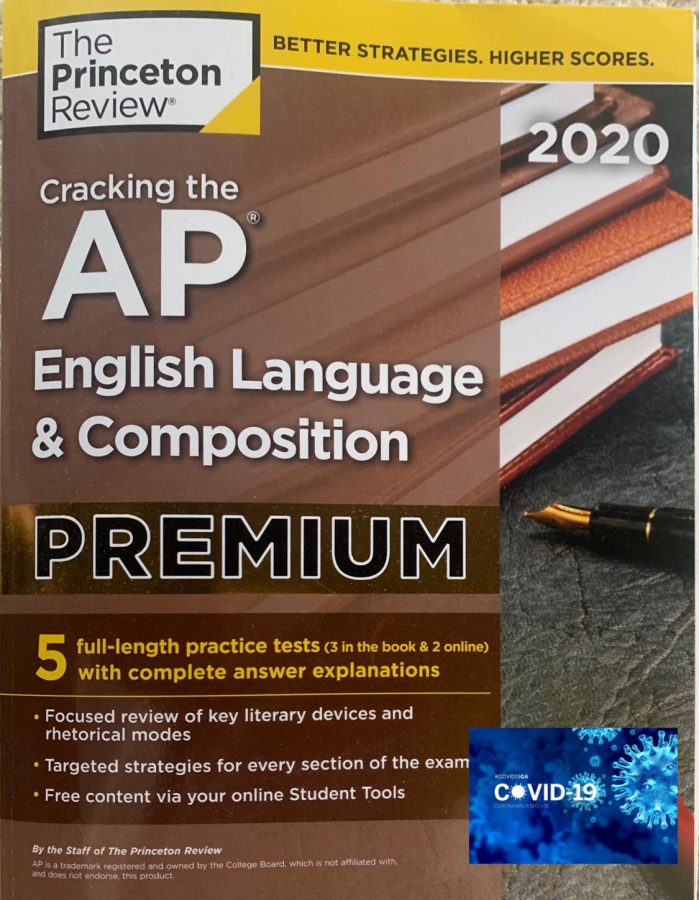The College Board Makes Historic Changes to its AP Exams
March 30, 2020
The College Board opted to change the format to all of its Advanced Placement exams this Spring in order to adjust to quarantining and social distancing. All high school AP students will take the AP exams online at home, leaving students and teachers scrambling to adapt.
Usually, the standard AP exam is two to three hours long, and it consists of a multiple choice section and a free-response section, which could be in the form of an essay, a solution to a problem, or a verbal response. Exams are always scored on a scale of one to five, with one being the lowest and five the highest.
According to the College Board, “students can take a 45-minute online free-response exam at home,” meaning that the exams will not have their typical multiple choice sections. Colleges across the United States are backing this plan because they “are committed to ensuring that AP students receive the credit they have worked this year to earn,” especially in the case of a national emergency.
Many students and educators worry about the proposed solution, primarily because, for many students in lower socioeconomic strata, access to technology presents a barrier. The College Board has noted this, offering to accept “a photo of handwritten work” while also recognizing that they “will invest so that these students have the tools and connectivity they need to review AP content online and take the exam.”
Another big problem looms for AP exam testers. With an online test, the College Board risks the chance of cheating, as a student could easily look up information to aid them in their free-response answer. “We use a range of digital security tools and techniques, including plagiarism detection software, to protect the integrity of the exams,” the College Board explained on their website. Despite these modifications, the honesty of the exam may be compromised.
The shift to a digital exam also means that AP exam graders will be working remotely from their homes. The College Board invites teachers from across the country to apply to be an AP Grader; those selected score the exams every summer. Typically, AP exam graders collaborate on grading, and there is one grader per each completed Free Response section of a student’s exam. Since AP exam graders will be working remotely, a student won’t receive the benefit of the graders’ in-person collaboration, which could negatively impact their overall performance.
The ramifications of the global pandemic on AP Exams has certainly affected Emery/Weiner students participating in AP classes. Not only will the actual exam be an adjustment, but students are perplexed by their virtual preparation and learning. “We don’t meet in the mornings before our classes anymore to get extra practice, and it is much more difficult to do these practices online over a call,” Junior AP Spanish student Bella Deutser explained.
In AP Spanish, Deutser was accustomed to practicing verbal speaking, multiple choice, and email writing, as all three are integral components of that exam. With the changes, Deutser says, “We also still have a lot of unknowns about the exam, which can be stressful because we don’t know what to expect or how to prepare.”
Like AP Spanish, United States History Advanced (the EWS equivalent to AP US History) also has many components to its exam. On the original APUSH exam, there was a multiple choice section, a document-based question (DBQ), short answer questions, and a long essay question. However, with the adjustments, there is only a DBQ prompt, and the test now only covers material from 1492 to 1945.
“This is a nice adjustment because we have already covered all of that material, but we don’t know what the distribution of the questions from each unit will be like,” Junior US History Advanced student Michal Ilouz said. “And since it is a United States History course, I think it would be fairer if we got tested on all units.” US History Advanced teacher Dr. William Epps bases his AP exam preparation on previous exams, so it will be challenging for his students to practice DBQs online without his grading structure and guidelines.
Despite some positives, both Deutser and Ilouz agreed that these modifications could affect their scores on the exams. “I think because there is no multiple choice section that could possibly negatively impact my score because we don’t have other opportunities to raise our score,” Ilouz said. Similarly, Deutser said, “We don’t meet as often or for as long with our Spanish teacher, which could have a big effect on our overall performance. We just don’t practice as much as we did in actual classes.”
